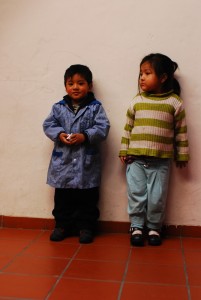Equal…but essentially different
I felt like my last entry on women and education didn’t cover everything. There was one vital part missing: how do women themselves feel about the opportunities they have in Argentina?
In reading Emmy’s entry, I decided to take the question further: what is the role of women in society and why is it important that they get an education? I am convinced that societies should give free access to education to everyone in an equal way. However, I found that I struggled in justifying why – and I’m not the only one.
I asked Mariana and Estefanía from German class, my sister Pilar and a colleague, Isabel, to tell me why they thought women should have an education. This is what they said.
For the younger girls – the first three of the lot – it was difficult to nail down their ideas. I believe this has something to do with how accepted the concept of women being inferior to men is in the professional world. The problem with sexist thinking in Argentina is that more often than not it comes from women themselves, and this attitude is passed on to the children. Also, some of the things they said applied not only to women, but to people in general. For instance, Mariana emphasized education as a key factor in knowing and using your civil rights. This is true for any human being. Pilar brought up independence, which, in the context of women’s history in Argentina, is especially relevant. But, generally speaking, it is something desirable for anyone.
(Click here to hear what my friends had to say.)
I believe (and I had trouble putting this idea into words myself) that living in a masculine-oriented society has deprived us citizens to think of a system that can organize itself around both masculine and feminine ways of thinking. Because, yes, we are equal in our right and obligations towards the other, but we are first and foremost different. And that difference is a source of richness.
There are hundreds of studies that describe the differences in how men and women think. The masculine mind may be more result-oriented and practical. A feminine mind is more sensitive to personal relationships and worried about building a harmonious social environment. Educated women, inasmuch as they are given the power and place in society they have earned, can help to construct a more inclusive and tolerant society.
I think the real change could take hold when women have not only secured equal opportunities to study and develop professionally, but when womanhood and manhood are both appreciated for their unique contributions to the establishment of a society. The way I see it, it takes years of work, a dedication that starts at home, continues inside the classroom and in the school, and has to be backed up by corresponding legislation.




